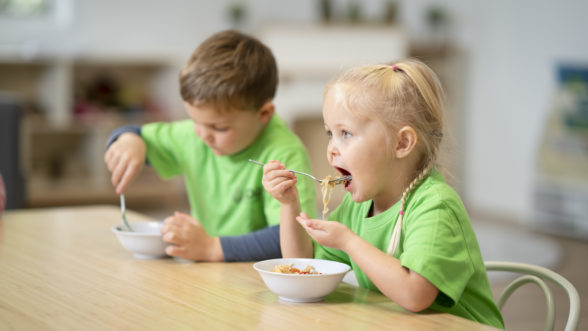
Nutrition, Wellbeing
Wellbeing
07 June, 2023

It’s no secret life is full of ups and downs. Learning how to ride life’s emotional rollercoaster is a valuable skill to have in your backpack – and it’s never too soon to start developing it.
Everyone experiences moments when feelings become overwhelming; when the urge to stamp your feet, shout out loud, or tell someone what you really think becomes too much. Being able to keep your cool in these situations is a skill known as self-regulation. It’s vital for social functioning and children need help to develop it.
Self-regulation is simply the ability to manage your own behaviour. It’s a skill that we start developing as babies and continue working on right through life. Self-regulation helps us to get along with other people, to behave appropriately and to make friends. Self-regulation in children can include being able to:
Emotional regulation in children is a skill that takes time and effort to develop and it’s important adults help children to learn self-regulation from a young age. Teaching children to recognise and name their feelings and guiding them in how to respond helps them to navigate big emotions and manage stress throughout their lives.
We’ve all heard the terms “hot head” and “cool as a cucumber?” Some people are naturally more “chilled”, while others have to work at it. While a child’s ability to self-regulate may certainly be influenced by genetics, experts agree it is very much a learned behaviour and other factors also have an impact.
It’s helpful for children to see their parents and other significant people in their lives model self-regulation. Being praised for good behaviour, managing a child’s stress and ensuring they get enough sleep are also factors that influence a child’s ability to self-regulate their emotions.
Emotional regulation for kids looks different at each stage of a child’s development:
At Edge Early Learning, we incorporate emotional regulation in children into our curriculum every day to help children develop skills to manage their emotions. Our educators model and praise appropriate behaviour and we encourage children to take part in yoga and mindfulness activities. Check out wellbeing section on Our Approach page for more information.